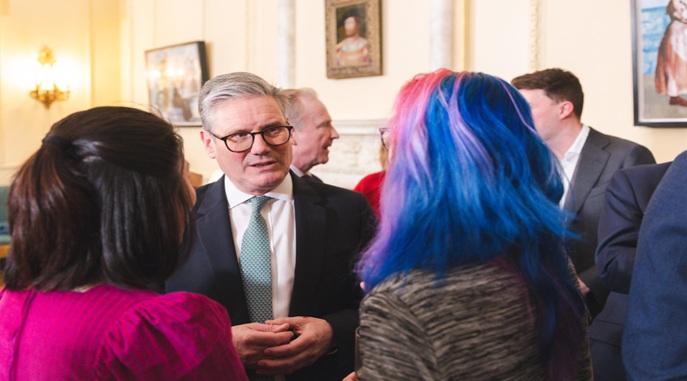
Prime Minister Keir Starmer has hinted at a potential reversal of Labour’s contentious proposal to allow tech giants to use copyrighted material to train artificial intelligence (AI) systems without permission, following fierce opposition from Britain’s creative sector.
The policy, initially framed as a boost for innovation, has sparked widespread alarm among artists, musicians, and publishers who fear it could devastate the nation’s £126 billion creative economy.
Creative Sector Sounds the Alarm
The uproar began when Labour’s AI Opportunities Action Plan, unveiled shortly after Starmer took office, suggested loosening copyright rules to permit tech firms to mine Britain’s creative output—books, music, films, and journalism—for AI training data unless creators explicitly opted out.
Industry heavyweights like Sir Paul McCartney, Sir Elton John, and Universal Music Group CEO Sir Lucian Grainge condemned the move as “catastrophic,” warning it would effectively legalize the plunder of intellectual property by Silicon Valley giants.
A government consultation on the proposal drew an unprecedented 11,500 responses, reflecting the depth of public and professional outrage.
Starmer’s Pivot Under Pressure
Speaking to reporters during a trip to the United States this week, Starmer appeared to backtrack. “No, all that’s happened is there’s been a consultation,” he said when asked if the plans were set in stone. “I want creatives to thrive. They’re really important for our country—not just the contribution to the economy but our global reputation.”
His comments mark a shift from earlier rhetoric prioritizing AI-driven growth, signalling that the government may reconsider its stance to appease the creative community.
Health Secretary Wes Streeting echoed this sentiment on BBC Radio 4’s Today programme, acknowledging the “totally legitimate” concerns of artists and promising a solution that balances fairness and innovation.
Tech vs. Tradition: A High-Stakes Debate
Labour’s initial proposal stemmed from a desire to position Britain as an AI superpower, aligning with Starmer’s economic growth agenda. The plan, backed by tech adviser Matt Clifford and science minister Lord Vallance—both with ties to Big Tech—aimed to attract investment from firms like Google and Meta by easing access to data.
Critics, however, argue it would disproportionately benefit American corporations, funnelling profits overseas while undermining Britain’s creative talent.
The Creative Rights in AI Coalition has dismissed claims of “uncertainty” in current copyright law, asserting that commercial use of protected works without consent is already illegal—and that the government risks legitimizing “theft on an industrial scale.”
Economic and Political Fallout
The backlash has exposed tensions within Labour’s vision.
The creative industries, supporting 2.4 million jobs, are a cornerstone of the U.K. economy, yet the government’s pursuit of AI investment has raised questions about whose interests it serves.
Opponents, including novelist Jeanette Winterson and TV presenter Richard Osman, argue that young artists and small publishers would be hit hardest, unable to compete with AI-generated content churned out by well-resourced tech firms.
Meanwhile, the lack of an economic impact assessment in the AI plan has fuelled accusations of shortsightedness, with sceptics questioning why energy-intensive data centres would choose Britain’s pricey electricity over cheaper alternatives abroad.
A Delicate Balancing Act Ahead
Starmer now faces a dilemma: stick to the original plan and risk alienating a vital sector, or pivot fully and potentially weaken Britain’s appeal to AI developers amid competition with U.S. giants.
Government sources suggest a compromise is in the works, possibly introducing stronger protections to ensure artists are compensated for their work rather than relying on an opt-out system.
As the consultation’s findings are reviewed, the creative industry—and its allies in Parliament and the press—will be watching closely.
For now, Starmer’s hinted climbdown offers a glimmer of hope that Britain’s cultural legacy won’t be sacrificed at the altar of technological ambition.








